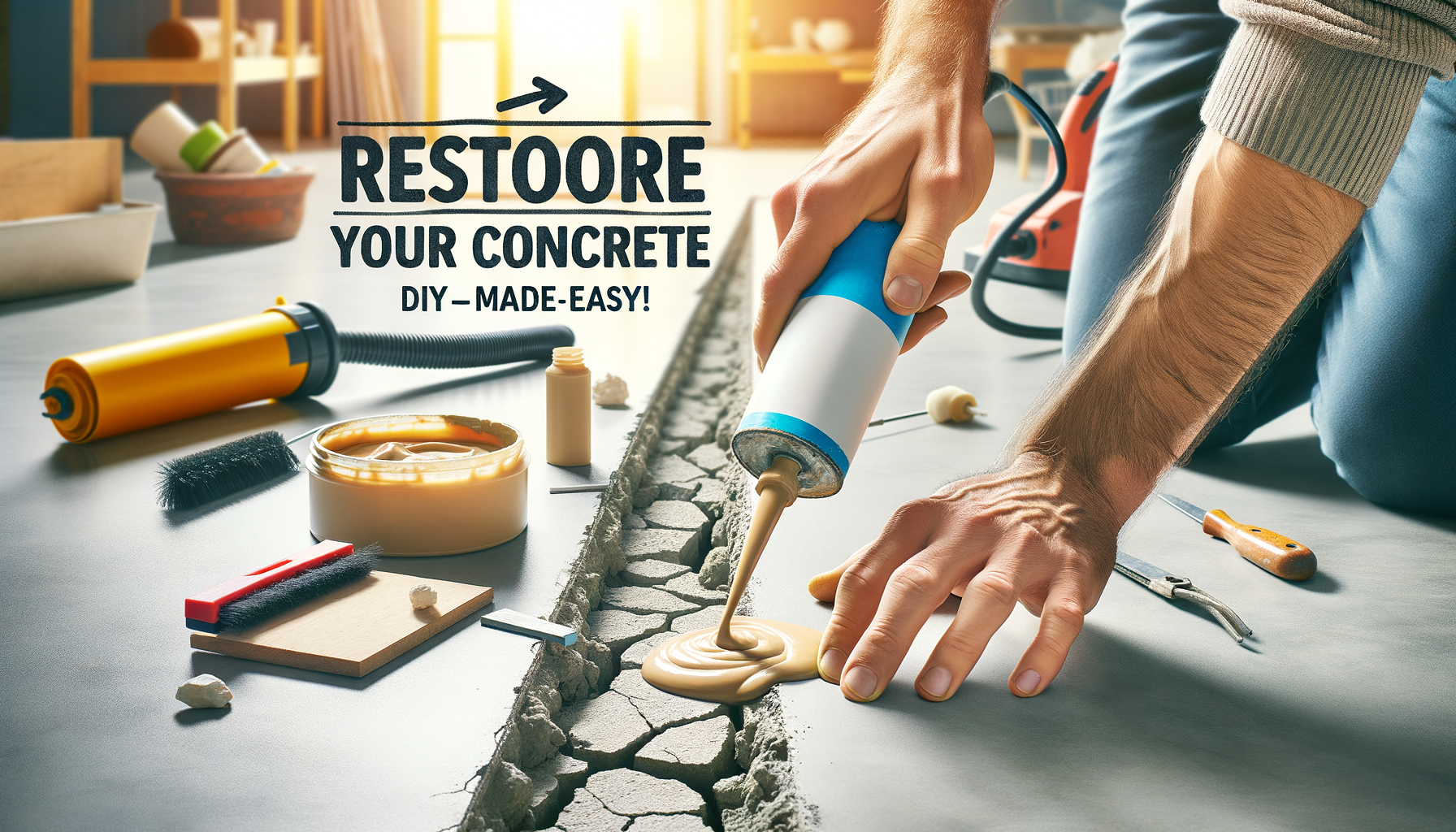Fixing cracks in concrete floors is important because it keeps your home safe and looking good. If you ignore these cracks, water can get in, causing damage and even mold. Here’s an easy guide to help you understand, identify, and fix these cracks.
Why Do Concrete Floors Crack?
Types of Cracks
- Hairline Cracks: These are very thin cracks, usually less than 1/8 inch wide. They happen as the concrete dries and shrinks.
- Settlement Cracks: These cracks occur when the ground beneath the concrete moves or settles unevenly.
- Structural Cracks: These are larger cracks that could mean there are serious issues with the building.
Why Do Cracks Happen?
- Shrinkage: As new concrete dries, it can shrink and cause small cracks.
- Settlement: If the ground under the concrete wasn’t prepared well, it can move and crack the concrete.
- Poor Construction: Bad mixing, placement, or no control joints can cause cracks.
Problems Cracks Can Cause
- Water Leaks: Cracks can let water in, which can cause mold.
- Lower Home Value: Visible cracks can make your home look bad and reduce its value.
- Weak Structure: Cracks can mean the building isn’t as strong as it should be.
When Should You Fix Cracks?
Small vs. Big Cracks
- Small Cracks: These are tiny or not getting bigger. You can usually watch them and fix them later.
- Big Cracks: These cracks are getting bigger or the floor is uneven. It’s best to call an expert.
Warning Signs
- Cracks getting wider
- Uneven or shifting floors
- Spots of water or dampness
- Strange noises like creaking near the cracks
First Check-Up
- Look: Check for new or growing cracks.
- Measure: Use a ruler to see how wide the cracks are.
- Water Check: Look for signs of water around the cracks.
How to Fix Small Cracks Yourself
Getting Ready
- Clean Up: Get rid of dust and dirt with a brush and vacuum.
- Supplies: You need gloves, goggles, crack cleaner, filler (like polyurethane or epoxy), and a putty knife or trowel.
Filling the Crack
- Fill It Up: Use a caulking gun to fill the crack with the filler.
- Use Sealer: For bigger cracks, pour in a self-leveling sealer.
Finishing Touches
- Smooth It Out: Use a putty knife to make the surface smooth.
- Let It Dry: Wait for the filler to dry (usually 24-48 hours) before using the floor.
How Experts Fix Big Cracks
Epoxy Injections
- Good For: Big or deep cracks that might be harmful.
- How It Works: Experts inject epoxy to bind the crack from inside.
Polyurethane Foam
- Benefits: Expands to fill gaps and strengthens the slab.
- How It’s Done: Injected into cracks, it expands and hardens.
Replacing the Slab
- When Needed: When there’s lots of damage, you might need a new concrete slab.
- Get Help: Hire licensed professionals to do it right.
How to Prevent Future Cracks
Proper Installation
- Make sure concrete is mixed, poured, and cured right.
- Install control joints to handle shrinkage.
Upkeep Tips
- Seal It: Regularly seal the concrete to protect it.
- Check Regularly: Keep track of any new changes or cracks.
Control the Environment
- Humidity: Use dehumidifiers to control moisture.
- Temperature: Keep a steady indoor temperature to reduce stress on the concrete.
Choosing the Right Expert
What to Look For
- Certification in concrete repair
- Lots of experience
- Good reviews and references
Questions to Ask
- What’s your experience with repairs like this?
- Can you give references from recent clients?
- What kind of warranty do you offer?
Cost
- Small repairs: $500-$1,000
- Big repairs or replacement: $2,000-$5,000 or more
FAQs about Fixing Concrete Floor Cracks
- Can I fix cracks myself? Yes, you can fix small cracks, but call experts for big ones.
- How long do repairs last? Good repairs can last many years, with regular upkeep.
- Is it expensive to hire a professional? Costs vary, but it can save you from bigger problems later.
- What materials are good for DIY fixes? Polyurethane and epoxy are good choices.
- How do I know if a crack is serious? If cracks are widening, floors are uneven, or water is seeping in, call a professional.
By following this simple guide, you can fix and prevent cracks in your concrete floors, making sure they stay strong and beautiful!


Leave a Reply